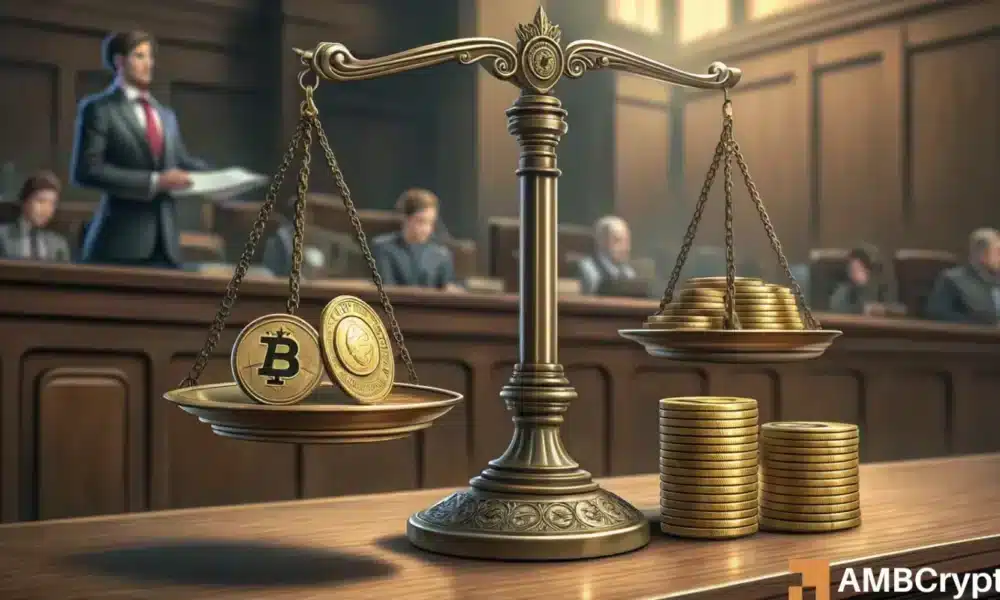Key Takeaways
BlockFi has reached a final settlement with the U.S. Department of Justice, ending a $35 million legal dispute tied to seized crypto assets.
The long-standing legal dispute involving crypto lender BlockFi has officially reached its conclusion.
A recent settlement between BlockFi’s bankruptcy administrator and the U.S. Department of Justice has put an end to a $35 million lawsuit over seized crypto assets.
Judge Michael B. Kaplan approved the settlement
Approved by Judge Michael B. Kaplan in the U.S. Bankruptcy Court for the District of New Jersey, the agreement dismisses the case with prejudice, ensuring it cannot be reopened.
Both parties have agreed to cover their own legal expenses.
Interestingly, the DOJ clarified that the seized assets were part of a criminal investigation into two Estonian nationals, not directly connected to BlockFi’s bankruptcy.
During the proceedings, the DOJ had argued that the bankruptcy court lacked the authority to block the asset transfer, turning the dispute into a question of legal jurisdiction as much as recovery.
A bankruptcy saga full of ripple effects
This newly approved settlement marks a pivotal moment in BlockFi’s broader bankruptcy saga, which began in November 2022 after FTX’s collapse triggered the firm’s financial downfall.
Following this, in March 2023, the company also resolved a $1 billion claim with FTX and Alameda Research through an $875 million settlement.
Remarking on this, CEO Zac Prince attributed the firm’s collapse directly to FTX founder Sam Bankman-Fried’s actions.
By September 2023, the court sanctioned BlockFi’s Chapter 11 plan to repay over 10,000 creditors, with the company still owing around $10 billion.
Fast-forward to 2024, BlockFi then set a 28th April 2024 deadline for customers to retrieve their crypto assets.
Finally, in May 2024, BlockFi began winding down its web operations, teaming up with Coinbase to assist eligible users, such as retail loan holders and interest account clients, in recovering remaining funds.
With these years of struggle, the case finally concluded.
What do these cases hint at?
Naturally, BlockFi’s collapse serves as a cautionary tale for crypto lenders entangled with high-risk counterparties.
At the same time, it also highlights how the U.S. Department of Justice has demonstrated growing vigilance in policing the crypto space.
Beyond overseeing BlockFi’s legal resolution, the DOJ has taken decisive action to dismantle crypto-related crime networks, seizing $225.3 million in USDT tied to fraudulent investment schemes.
It also shut down 145 sites linked to the BidenCash darknet marketplace.
These developments highlight a critical shift toward stronger enforcement and accountability in the digital asset ecosystem.







